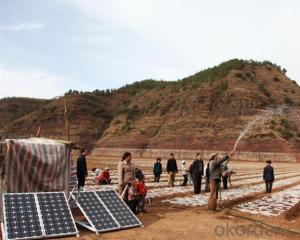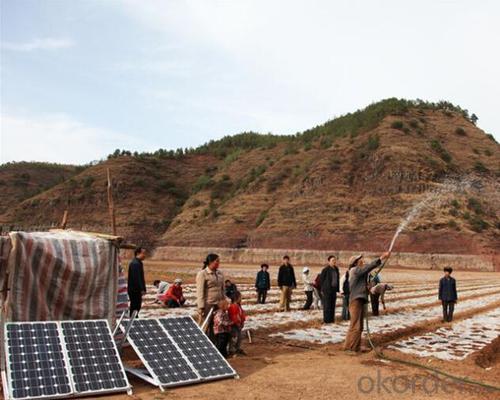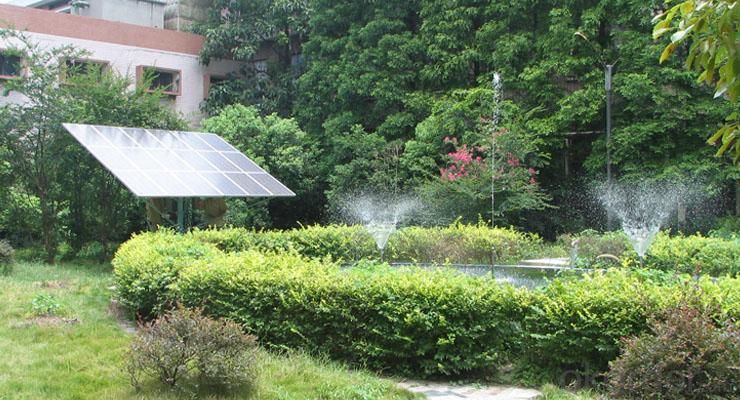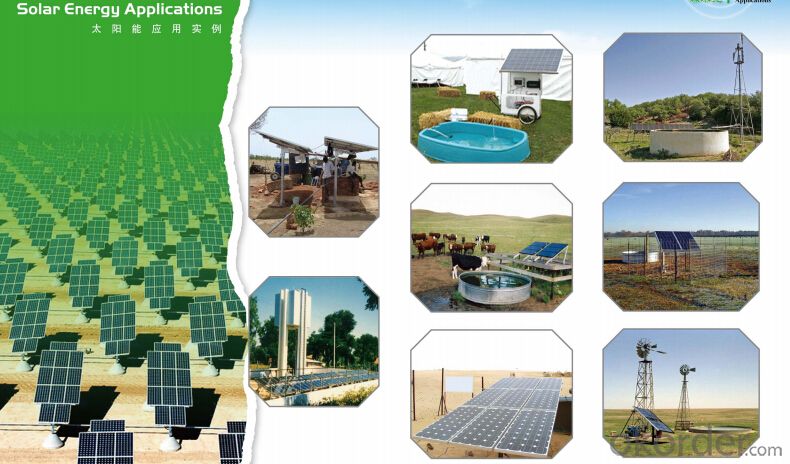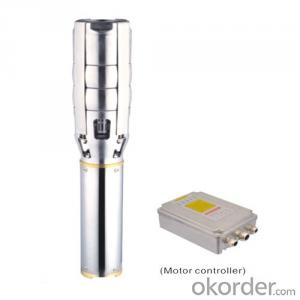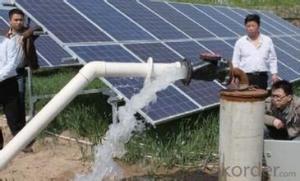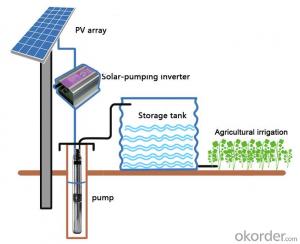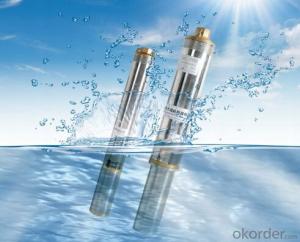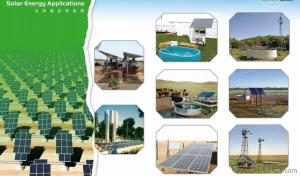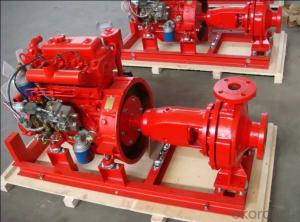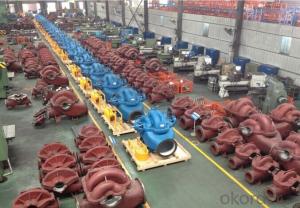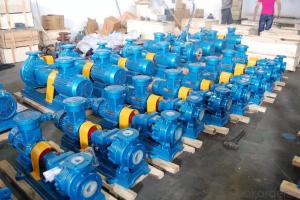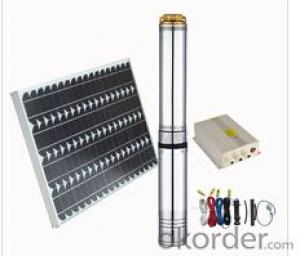Solar Water Pump Centrifugal Pump System 0.8-1KW for Agricultural Irrigation
- Loading Port:
- Shanghai
- Payment Terms:
- TT OR LC
- Min Order Qty:
- 10 pc
- Supply Capability:
- 1000 pc/month
OKorder Service Pledge
OKorder Financial Service
You Might Also Like
Solar Water Pump Centrifugal Pump System 0.65KW for Agricultural Irrigation
The photovoltaic pumping system is different from the traditional AC pumping system , and the photovoltaic pumping system utilizes solar cells convert solar energy into electric energy , then the photovoltaic pumping inverter drives ac motor for the pump running , and pumping up water from water well , river , lake etc areas and then transport to the destination to satisfy our requests for the water demand .
Photovoltaic arrays adopts solar radiation energy to convert it to electric power ,providing the motive power for the whole system . And the function of the solar pumping inverter is converting the DC power output from PV array to AC power to drive the pump to finalize the water pumping up as well as adjusting the output power real-timely according to the change of sunlight intensity , in this way , the system realizes the max power point tracking and the solar energy can be utilized furthest
The whole system solves the water pumping up requests perfectly , omitting the battery bank and charge controller etc equipments , so it is very economical and environmental . Since they are with the merits of low carbon , energy conversation , environmental protection etc , so they have a broad market foreground and great social value
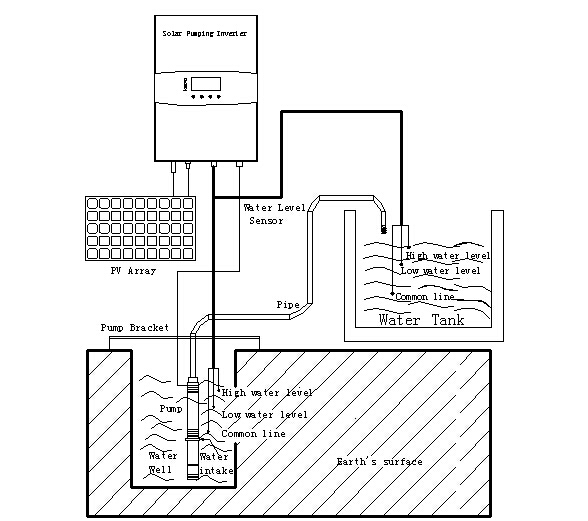
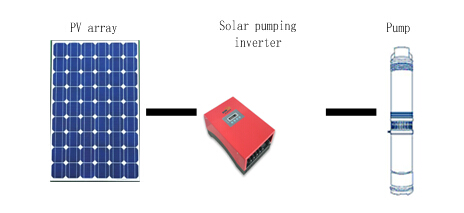
2.2 Application
Agricultural irrigation
Desert manage
Domestic water
Grassland animal husbandry
city waterscape
Island water supply
Landscape and fountain system of municipal engineering , city square , hotels and residence community
2.3 About product
This product is using a high performance digital signal processing chip, can provide solution for solar water pumpingsystem with high cost performance. Solar pumping system as a whole block diagram as shown in 2.
SHP series inverter has the following features:
a. True max power tracking technology (TMPPT) with our own intellectual property; effectively improve the use ratio of PV array. The stable tracking efficiency can reach 99.2% , Solving the problem of bad tracking efficiency and running unstability under the situation of sunlight intensity quick change when comparing with the traditional MPPT method .
b. Adopt efficient IPM power module from Mitsubishi Company with high reliability.
c. With the function of high and low water level detection , high safety factor.
d. Automatic anti-drying protection function , with multi-protection for motor
e. Multi-language LCD display , easy for operation , very user-friendly
f. The independent developed principal computer with our own intellectual properties , remote monitoring is available
g. Modular design , direct plug-in terminal , good-looking appearance, easy for installation , operation and maintenance .
h. Suitable for the pump adopted three phase asynchronous motor
i. Complete digital control , with the function of full automatic running and data storage .
j. Perfect protection system , with the protection function for lighting , over voltage , under voltage , short circuit , over loads , water drain off , low sunlight , over heating etc ,
k. Adopt the complete radiating system , so radiating efficiency is better and the service life is longer
l. Through strict environmental test , adapt the rigorous environment :-10℃~+50℃
m.No impacted mains supply power switch function (optional ), All-weather running available
n. Through strict environmental test , adapt the rigorous environment :-10℃~+50℃
FAQ
1. How fast will my system respond to a power outage?
Our solar inverters typically transfer to battery power in less than 16 milliseconds (less than 1/50th of a second).
2. What kind of batteries do the systems include?
Our solar backup electric systems use special high-quality electric storage batteries.
3. How do I install my system?
A solar backup inverter is connected to a home electric system , we will supply detailed installation manual and videos for our customers .
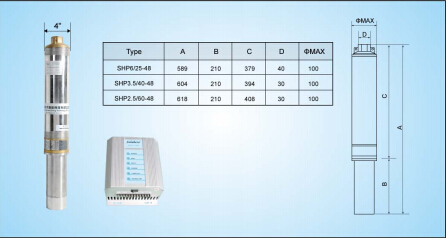
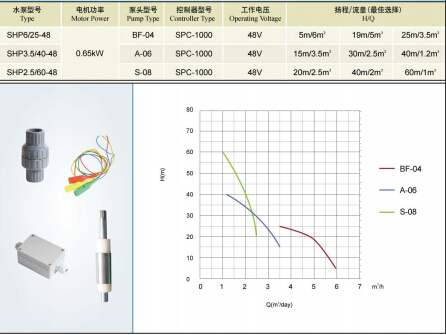
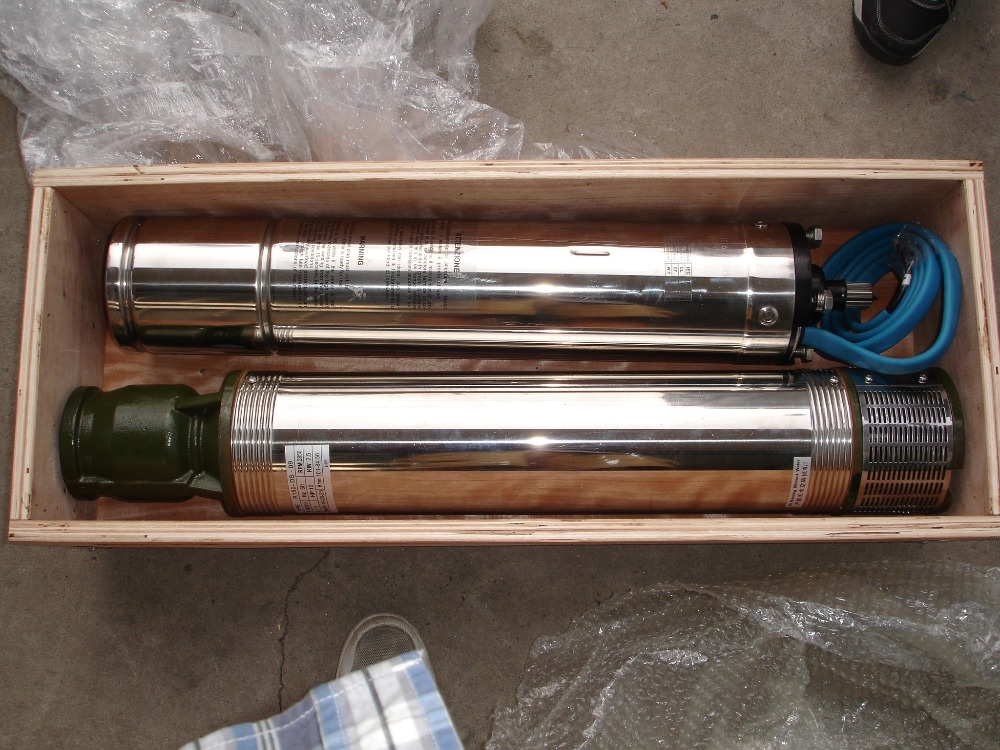
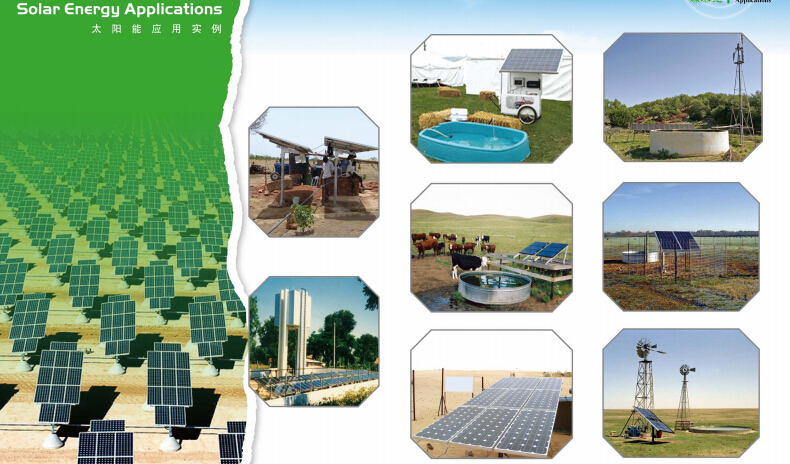
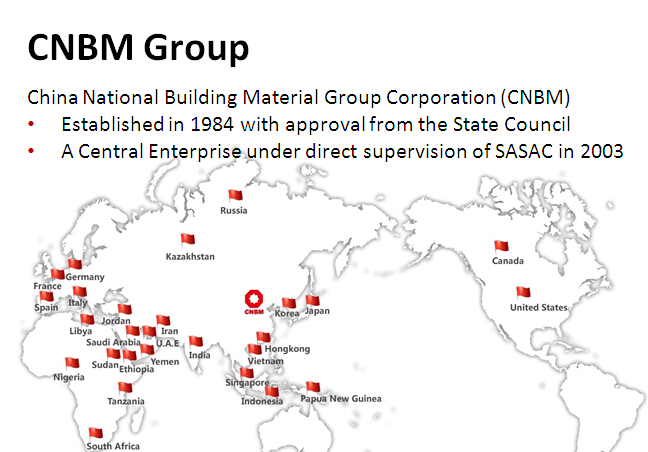



- Q: Can a solar pump be used in areas prone to flooding?
- Yes, a solar pump can be used in areas prone to flooding. Solar pumps are designed to be weather-resistant and can continue to operate even during heavy rain or flooding. Additionally, since they run on solar power, they do not rely on electricity grids, making them suitable for areas with unreliable or disrupted power supply due to flooding or other natural disasters.
- Q: Can a solar pump be used in residential applications?
- Yes, a solar pump can definitely be used in residential applications. Solar pumps are a great alternative to traditional electric pumps for various residential purposes such as providing water for household use, irrigation, or even pool circulation. They harness the power of the sun to operate, eliminating the need for grid electricity and reducing energy costs. Additionally, solar pumps are environmentally friendly, producing zero greenhouse gas emissions and reducing dependence on fossil fuels. They are also easy to install, require minimal maintenance, and can be a reliable source of water in remote or off-grid areas. Overall, a solar pump is a viable and efficient option for residential applications.
- Q: How does a solar pump handle water source contamination from natural disasters?
- A solar pump cannot directly handle water source contamination caused by natural disasters. However, it can provide a reliable and sustainable source of water by tapping into groundwater reserves which are typically less prone to contamination during such events. Additionally, if the water source does become contaminated, it is essential to employ proper filtration and purification methods to ensure safe drinking water.
- Q: Can a solar pump be used for water supply in off-grid farms?
- Certainly, a solar pump can be utilized to provide water supply in off-grid farms. In remote areas where electricity is inaccessible, solar pumps serve as a superb alternative to conventional fuel-powered pumps. By harnessing energy from the sun, they convert it into power to effectively pump water from a well or water source to the desired destination. Solar pumps possess numerous advantages for off-grid farms. Firstly, they prove to be cost-effective as they eliminate the necessity for fuel, thereby reducing long-term operational expenses. Additionally, solar pumps necessitate minimal maintenance in comparison to fuel-powered pumps, resulting in reduced downtime and increased productivity on the farm. Furthermore, they are environmentally friendly, emitting zero greenhouse gas emissions and diminishing the farm's carbon footprint. Additionally, solar pumps can be tailored to suit diverse farm sizes and requirements. They are available in various sizes and power capacities to cater to both small-scale farms and large agricultural operations. Solar pumps efficiently pump water for irrigation, livestock watering, and other farm-related activities, ensuring a sustainable and dependable water supply, even in remote regions. However, it is crucial to take certain factors into consideration when installing a solar pump for water supply in off-grid farms. The size of the solar panel and battery bank should be calculated based on the water demand and the amount of sunlight available in the area. Furthermore, proper installation and regular maintenance are vital to ensure optimal performance and longevity of the solar pump system. To conclude, solar pumps are an outstanding option for water supply in off-grid farms. They offer a sustainable, cost-effective, and environmentally friendly solution, guaranteeing a reliable water source for irrigation and other farming activities.
- Q: How does the size of the solar pump motor affect its performance?
- The performance of the solar pump is significantly affected by the size of its motor. The motor size has a direct impact on both the power output and efficiency of the pump. When the motor is larger, it generally means that the power output is higher. As a result, there is an increased water flow and higher pressure. This is particularly important for situations that require pumping water over long distances or to higher elevations. With a larger motor, more force can be generated, allowing it to overcome friction and deliver water with greater speed and force. Furthermore, a larger motor has the capability to handle a higher workload and operate for longer periods without overheating. It can manage larger volumes of water and work more efficiently, thereby reducing energy consumption and improving the overall effectiveness of the solar pump system. Conversely, a smaller motor may have limitations in terms of power output and efficiency. It may struggle to provide sufficient water flow and pressure, especially for demanding applications. A smaller motor may also have a lower workload capacity, resulting in more frequent breakdowns and reduced longevity. Choosing the appropriate motor size is crucial and should align with the intended application and specific requirements of the solar pump system. Factors such as the desired water flow rate, required pressure, and the distance and elevation at which the water needs to be pumped are all essential considerations when determining the suitable motor size. To summarize, the performance of the solar pump is directly influenced by the size of its motor. A larger motor can offer higher power output, increased water flow, and improved efficiency, while a smaller motor may have limitations in these areas. Selecting the right motor size is essential to ensure optimal performance and reliability of the solar pump system.
- Q: What are the safety precautions to be taken while operating a solar pump?
- To ensure the well-being of both the operator and the equipment when operating a solar pump, it is important to take several safety precautions. These precautions include the following: 1. Electrical Safety: Before working on or near the solar pump system, make sure to turn off and disconnect the power supply. This will help prevent electrical shocks and damage to the equipment. Additionally, avoid touching any exposed electrical wires or connections. 2. Personal Protective Equipment (PPE): When operating a solar pump, always wear appropriate PPE such as gloves, safety glasses, and protective clothing. This will protect you from potential hazards such as sharp edges, hot surfaces, or chemical spills. 3. Installation and Maintenance: Only qualified personnel who have received proper training should install, repair, or maintain solar pumps. It is crucial to follow the manufacturer's instructions and safety guidelines to ensure correct installation and prevent accidents or malfunctions. 4. Ventilation: Proper ventilation is important in the area where the solar pump system is installed to prevent overheating. This will help maintain the system's efficiency and prevent potential fire hazards. 5. Grounding: Proper grounding of the solar pump system is essential to prevent electrical shocks and equipment damage. Make sure all components of the system are grounded according to the manufacturer's instructions. 6. Water Safety: If the solar pump system is used for pumping water, ensure that the water source is clean and free from contaminants. Regularly check the water quality to prevent health risks or damage to the pump. 7. Regular Inspections: Regularly inspect the solar pump system for signs of wear and tear, loose connections, or leaks. Address any issues promptly to prevent further damage or accidents. 8. Emergency Preparedness: Familiarize yourself with emergency procedures in case of accidents such as electrical shocks, fires, or system malfunctions. Keep a fire extinguisher and first aid kit readily available for emergencies. By following these safety precautions, you can minimize potential risks and ensure the safe operation of a solar pump system. Always prioritize personal safety and equipment maintenance to enjoy the benefits of renewable energy without any incidents.
- Q: Can a solar pump be used for frost protection in agricultural fields?
- Yes, a solar pump can be used for frost protection in agricultural fields. Solar pumps can circulate water throughout the field, creating a protective layer of ice on crops, which helps insulate them from freezing temperatures. Additionally, solar pumps can also be used to spray water on crops, forming a protective ice coating that prevents frost damage. This method is an environmentally friendly and cost-effective solution for frost protection in agricultural fields, especially in regions with ample sunlight.
- Q: Can a solar pump be used for water supply in pharmaceutical or biotechnology industries?
- Yes, a solar pump can be used for water supply in pharmaceutical or biotechnology industries. Solar pumps are a sustainable and efficient solution for water supply, offering reliable performance and reducing the reliance on traditional energy sources. Their ability to operate off-grid and in remote locations makes them well-suited for industries where consistent and clean water supply is crucial for various processes, such as manufacturing drugs or conducting research in pharmaceutical or biotechnology industries.
- Q: Can a solar pump be installed in areas with extreme temperatures?
- Indeed, areas with extreme temperatures can accommodate the installation of a solar pump. These pumps are engineered to endure a broad spectrum of temperatures, encompassing both scorching heat and freezing cold. Nevertheless, it is crucial to meticulously evaluate the distinct conditions and prerequisites of the area prior to embarking on the installation of a solar pump. The efficacy and functionality of the pump may be impacted by the extreme temperatures, thus it is prudent to opt for a pump that aligns with the temperature range specific to the area. Moreover, it is imperative to implement adequate insulation and protective measures to avert any potential harm that may be inflicted upon the pump due to the extremity of the temperatures.
- Q: Are there any limitations on the water hardness or softness that a solar pump can handle?
- Yes, solar pumps do have limitations on the water hardness or softness they can handle. The main limitation is related to the pump's components and their vulnerability to corrosion or scaling. Hard water with high mineral content can lead to scaling and clogging of the pump, reducing its efficiency and lifespan. Similarly, extremely soft water can cause corrosion and damage to the pump. Therefore, it is important to consider the water quality and take appropriate measures such as installing a water treatment system or using appropriate materials to prevent these issues and ensure the optimal performance of the solar pump.
Send your message to us
Solar Water Pump Centrifugal Pump System 0.8-1KW for Agricultural Irrigation
- Loading Port:
- Shanghai
- Payment Terms:
- TT OR LC
- Min Order Qty:
- 10 pc
- Supply Capability:
- 1000 pc/month
OKorder Service Pledge
OKorder Financial Service
Similar products
Hot products
Hot Searches
Related keywords
